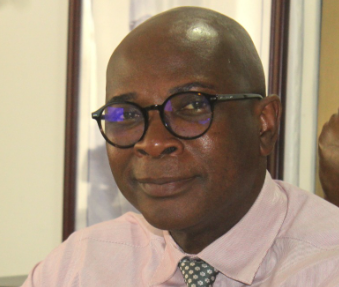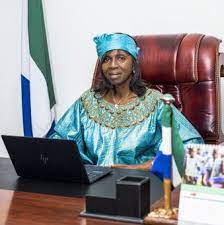The Free Education Project Secretariat and the Special Needs Unit of the Ministry of Basic and Senior Secondary Education (MBSSE) are collaborating with school heads nationwide to develop Action Plans aimed at ensuring inclusive education for all children with special needs. Key figures leading this initiative include Mohamed Salieu Jalloh, MBSSE’s Assistant Director of Special Needs; Abdul Sawab Bakarr, Policy Component Coordinator of the Free Education Project Secretariat; and Holima Abraham Samai, Inclusive Education Specialist at the Secretariat.
These Action Plans are the culmination of a nationwide inclusive education training program for school heads and teachers identified as Radical Inclusion Champions. This initiative aligns with the Government’s National Policy on Radical Inclusion in Schools, which mandates the identification and training of teachers to serve as Inclusion Champions within their schools and communities. So far, nearly 300 Inclusion Champions have been engaged across Bo, Kenema, Bombali, Kambia, Tonkolili, and Kono Districts.
Prior to each training session, MBSSE officials, in partnership with the Education Committees of Local Councils, visited schools in the targeted districts. During these visits, school authorities identified two teachers per school to serve as Radical Inclusion Champions.
During a recent tour of schools in Kono and Tonkolili Districts, Abdul Sawab Bakarr emphasized that the Ministry would collaborate closely with the champions to implement the Radical Inclusion Policy in both schools and communities. He explained that the champions’ primary role would be to identify children from low-income families, those from remote areas, children with disabilities, parent learners, and pregnant schoolgirls. This, he noted, would facilitate the provision of necessary support to ensure these pupils remain engaged in their education.
Speaking on the training conducted for the Inclusion Champions, Holima Abraham Samai highlighted that the selected teachers are being equipped with the skills to promote inclusivity not only in their schools but also in the wider community. Mr. Samai outlined key areas covered in the training, including identifying pupils with special needs, preparing Individual Education Plans (IEPs), creating inclusive classroom environments, and adapting lesson plans to meet the needs of all pupils.
Mr. Samai also revealed that the Action Plans developed by the teachers include specific timeframes and target groups for each activity. He underscored a crucial aspect of the Radical Inclusion Policy, emphasizing that champions should also monitor the well-being of special needs pupils in their homes and communities to address any harmful behaviors that could hinder their education. “A pregnant girl will be discouraged from going to school if she is being called derogatory names in her community,” he remarked.
In Kambia District, Foday Kamara, Head Teacher of KDEC Primary School in Rogberay Village, expressed his gratitude for the training. He acknowledged that it had made him and his staff realize their previous unfair treatment of pregnant schoolgirls. Kamara noted that while Rogberay is a highly Islamic community where premarital pregnancy is frowned upon, the training helped them understand that pregnant girls are victims who need support, not condemnation. As a result, the school plans to engage with community authorities to share the knowledge gained from the training.
In Tonkolili District, John Idrissa Fulla, Head Teacher of Roman Catholic Primary School, admitted that he had not previously understood that pupils with special needs include those with learning difficulties. He confessed that such children were often shamed in class but pledged that his school would now focus on identifying these pupils and providing them with the support they need, such as seating them in the front row and encouraging their classmates to be respectful and supportive.
In Kono District, Deputy Director of Education Prince Patrick Ngebeh expressed his appreciation for the training, noting that the efforts of the District Education Office had been hampered by a lack of skills to support children with disabilities. DD Ngebeh vowed to closely monitor the implementation of the Action Plans developed by the school authorities to ensure their success.













